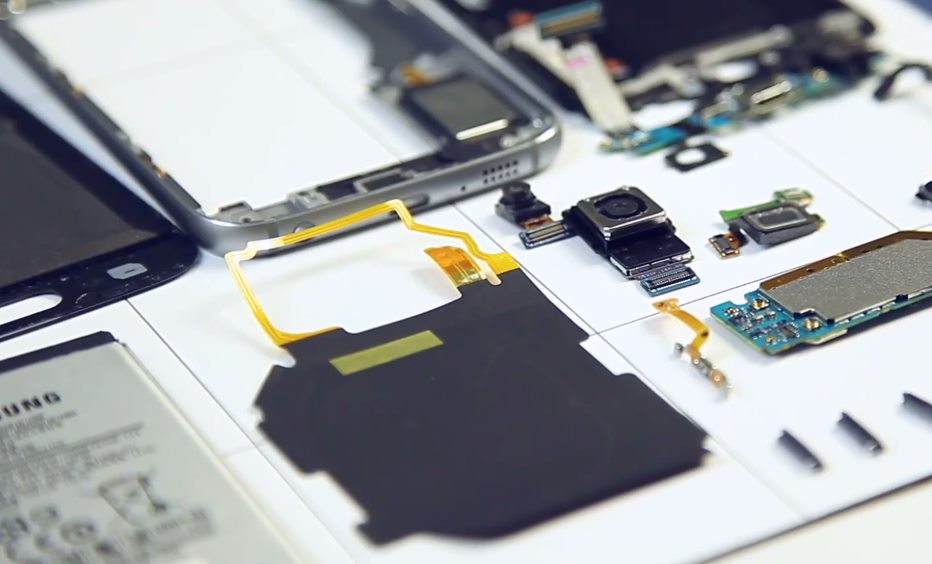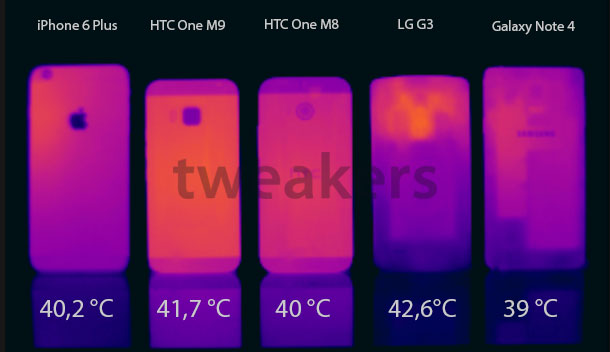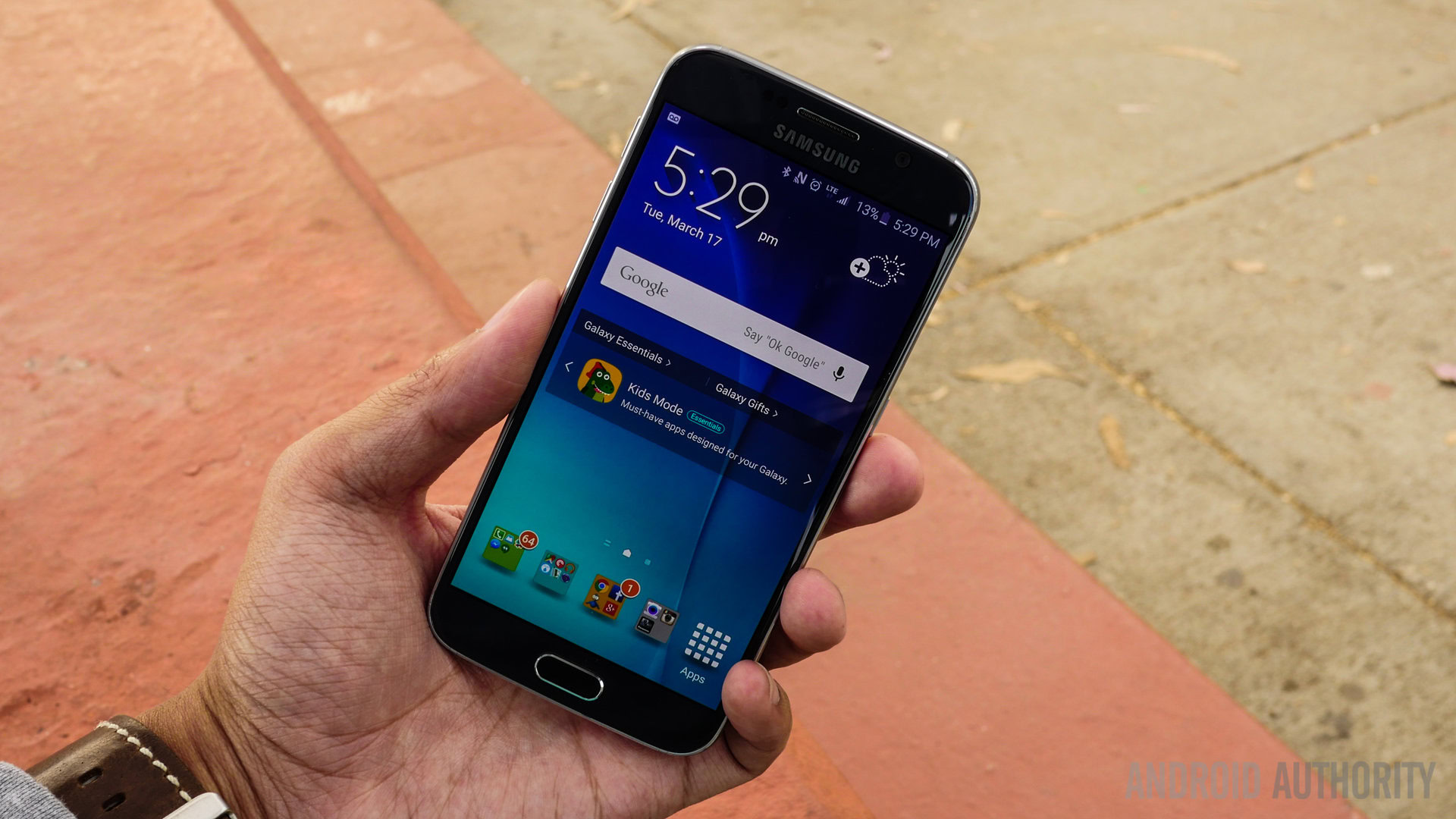Affiliate links on Android Authority may earn us a commission. Learn more.
Is Samsung right to move away from Qualcomm?

By the time that Samsung actually unveiled the Galaxy S6 at MWC in Barcelona we already knew that it wasn’t going to have Qualcomm’s Snapdragon 810 processor inside. Instead Samsung decided to go with its own in-house Exynos 7420 SoC. This decision prompted a lot of speculation about Samsung’s motives, and inevitably had a negative impact on Qualcomm.
Was Samsung really switching because of overheating issues, as the rumor suggested? Was it looking to reduce dependence on suppliers? Was it paving the way to compete directly with its old partner? Maybe there’s another motive altogether that has to do with the wider smartphone market. Or maybe it’s all of the above.
Qualcomm is feeling the heat
Just over a year ago we did an article on Qualcomm’s dominance in mobile. The company successfully rode the smartphone wave to the top of the mobile chipset market. But staying at the top in any industry is not easy.
Intel hasn’t made a great deal of headway in the face of ARM’s dominant designs, but the competition between the leading SoC manufacturers working with ARM has been growing fiercer. The short term threat to Qualcomm is coming from MediaTek, NVIDIA, and Samsung.
Then there was Apple’s announcement of a new 64-bit A7 chip, which Qualcomm’s chief marketing officer, Anand Chandrasekher wrote off as a “marketing gimmick”, comments he later retracted. That fed into the idea that Qualcomm was slightly behind the curve and maybe it was rushing to catch up.

At the end of 2014 a rumor popped up that Qualcomm’s Snapdragon 810 was having overheating problems. It was unclear where the rumor had come from, but it was pretty persistent and it eventually morphed into the story that Samsung was ditching the 810 for the Galaxy S6 because of overheating.
Qualcomm tried to defend itself and all the Snapdragon 810 partners, including LG, Xiaomi, HTC, Motorola, Sony, OPPO, and Microsoft, gave glowing quotes in this press release. The counter to the overheating argument is that the initial problems with the 810 were fixed during development and the processors going out to the public in phones like the LG G Flex 2 have no problems. Though this counter does acknowledge that there was some kind of problem.
No smoke without fire
Even though Samsung will continue to be a major Qualcomm partner on other fronts, it was notable that the South Korean manufacturer made no move to quash the rumor. Samsung CEO, J.K. Shin, did nothing to dispel the idea that the 810 was dumped due to overheating when he told the Korea Times,
“Samsung previously used more Qualcomm mobile processors, but we are flexible. If Qualcomm chips are good enough, then we will use them. Samsung always uses the best-quality components and materials to differentiate our products from those by rivals.”
That sounds a lot like he’s saying the Snapdragon 810 wasn’t good enough. Why would Samsung do that? We can think of a few reasons.
1. It really does overheat
It’s possible the 810 really does have an overheating problem. But why would Qualcomm’s other partners go along with the denial if this was really the case? You’d think it’s going to be pretty obvious when the next wave of Snapdragon 810-toting smartphones hit the market. Reviews are in for the G Flex 2 and the One M9 and we aren’t seeing lots of overheating reports, though there was a report that the HTC One M9 was overheating and may now have been throttled to cope with the issue. LG did also acknowledge there was a problem with the first batch of 810 chips, but said the issue had been fixed and they felt confident releasing the G Flex 2. There is evidence of fairly aggressive thermal throttling, but that’s par for the course and you can find it in the G3 as well.

Phones are going to get hot when you play high-end games for a long time, but that’s true of every phone. Because of the rumor, there’s a real danger of confirmation bias here, some people are looking for overheating evidence, and ignoring the evidence that the 810 doesn’t have a significant problem compared to the rest of the field. If you think there’s no smoke without fire, what about smoke machines?
If the rumor that the LG G4 will use the Snapdragon 808 instead of the 810 proves true, that will be telling, but we need to see a lot more actual evidence of a serious overheating problem when the 810 phones hit the market before we accept that it’s definitely more than a series of rumors.
2. Samsung wants to limit dependence
This is probably true regardless of any other motives. What company doesn’t want to reduce dependence on outside partners? If Samsung can make more stuff itself it can potentially save money and have tighter control over production. Samsung wants to reverse the decline in profit margins and this will reduce its per unit cost. It has a surplus chip-making capacity, so why not take more advantage of it? You could also point to the fact that the Exynos big.LITTLE chips are more mature than Qualcomm’s, because Samsung has been using the technology for a while now, while Qualcomm had to catch up.
Perhaps most importantly, it offers a way to differentiate Samsung’s flagship from the competition more easily because Qualcomm sells to everyone. We’re sure this is one of the reasons.
3. Samsung wants to compete with Qualcomm
What better way to boost your own fortunes than to take a competitor down a notch? If the Exynos in the Galaxy S6 is paving the way for a future of Samsung supplying other manufacturers then this move makes sense. It simultaneously says Qualcomm’s processors aren’t good enough and ours are.
But is Samsung looking to supply the market? Consider that it’s still responsible for the bulk of Apple’s chipsets and you can see Samsung has no compulsion about working with competitors if it brings profit. Samsung could well be looking to muscle into the processor market and eat Qualcomm’s lunch. It may be willing to trade off the differentiation for the profit and reputation enhancement that would come from supplying the other manufacturers.

What if Samsung can’t compete? Maybe Qualcomm will come back with a stronger next generation. Worst case scenario for Samsung — it just starts buying Snapdragon again.
4. Samsung wants to denigrate the competition
By saying the 810 isn’t good enough for the Galaxy S6, Samsung is hinting that all of its competitor’s flagship smartphones aren’t as good. The overheating rumor could easily fall into the FUD (fear, uncertainty, and doubt) category as a strategy to circulate negative impressions about competing phones. It manages to tar all of Samsung’s Android competitors with the same brush and leaves the Galaxy S6 unscathed.

Whether this strategy works, if it is indeed Samsung’s strategy at all, remains to be seen and depends a great deal on how the two SoC’s compare. Early benchmark reports suggest that Samsung’s processor is more powerful, but Qualcomm’s modems may be faster and less power-hungry. There are lots of other points of comparison and we need to see real world performance before we can draw any conclusions on this stuff.
Into the unknown
We may never know for certain where the overheating rumor originated, but Samsung is clearly seizing the opportunity to benefit. Whether it’s a forced reaction to a chip with problems, the first step in a play for the high-end processor market in mobile, the latest broadside against the Android smartphone competition, or a mixture of all three, should become clear within the next year or so.
What do you think? Increased competition for Qualcomm could be a good thing. Are there really serious problems with the 810? Is Samsung playing dirty or is this all just business as usual?